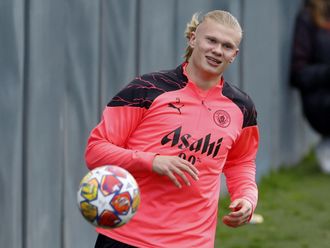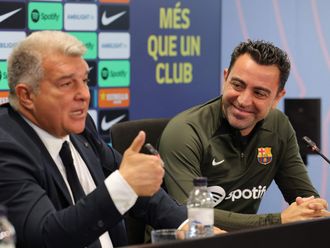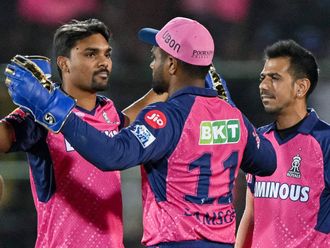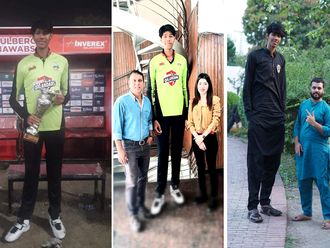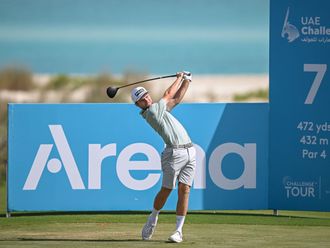Moscow: Ranked sixth best in Europe by Uefa and infused with shiny new stadia for the fast-approaching World Cup, Russian club football should be brimming with optimism.
But beneath the glitter of wealthy teams such as Spartak Moscow or Zenit Saint Petersburg lies a league still searching for a business model, plagued by unpaid wages and player strikes.
A season that pauses for three months in the winter only adds to the difficulties of clubs trying to strike it rich in big-money European tournaments, which culminate in the spring.
Russian sides routinely get knocked out early due to rustiness caused by a lack of training, losing out on one of the main sources of income for the “Big Five” European leagues.
Empty coffers mean the Russian Premier League champion is rewarded with a bonus of $5 million (4 million euros), less than a tenth of the going transfer fee rate for a big star.
“The Russian Premier League is effectively bankrupt,” said players’ union leader Vladimir Leonchenko.
The winter break lacked cheer in Russia, where even clubs that have provided feel-good stories, such as Rubin Kazan, seemed doomed.
Accustomed to European football after upsetting Barcelona at the Nou Camp in 2009, the plucky side from oil-rich Tatarstan lost their prized French international Yann M’Vila.
It was a forced decision in return for which Rubin got nothing: the 27-year-old triggered a release clause in his contract after going unpaid for three months.
The financial straits were so dire for Amkar Perm, an upstart from the Urals, that manager Gadzhi Gadzhiyev at one stage doubted the club would be able to finish the season.
“I spoke to Perm’s regional leaders and received [financial] guarantees,” said Gadzhiyev, who once worked with the Soviet national team.
“But we need a new approach to lift doubts over next season.”
And on the outskirts of President Vladimir Putin’s native Saint Petersburg, the players of newly promoted Tosno spent a part of February on strike.
“I will not hide it — we have a problem with financing,” said Tosno president Maxim Levchenko.
Tosno’s budget of $12 million “has a hole,” he said.
After the collapse of the rigid Soviet system in which clubs were backed by either the army, police or a ministry, Russian clubs found themselves caught in a downward spiral.
Teams inherited bleak all-purpose stadiums that were open to the elements and lacked amenities.
Few people turned out for matches except for hard-core fans who often stirred up trouble.
Stadiums became even less profitable, leading to unmaintained pitches that were difficult to play and painful to watch on TV.
Fans stayed home and spent their time on weekends glued to one of the other European leagues on TV.
Things got so bad that according to Uefa’s latest review, Russian teams received an average of 1.8 million euros in TV rights in 2016 — less than those in Poland and Romania.
“Increasing TV revenues is our priority,” said Russian Premier League President Sergei Pryadkin.
Lacking ticket sales and unable to count on the TV cash cow, teams sell their more promising players and rely on the goodwill of sponsors — many of them operated by the government.
“We are not really talking about sponsorship but the injection of money by state-run companies,” said players’ union boss Leonchenko.


